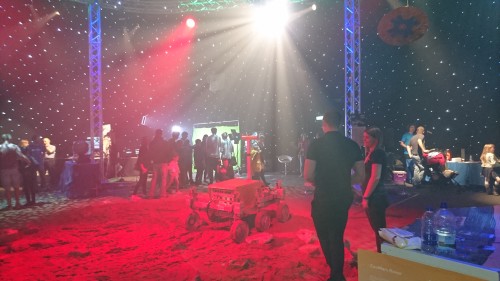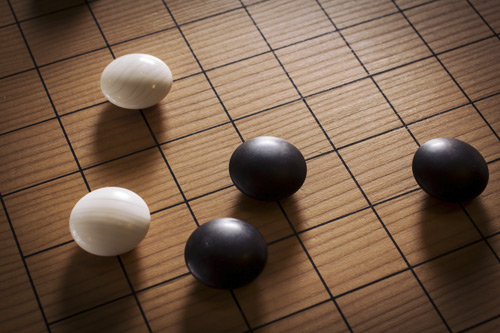Tag archives: artificial intelligence
Playing poker with robots on Mars

A prototype of the ExoMars rover trundles around inside the “space dome” at the Cheltenham Science Festival.
By Margaret Harris
How do you keep an astronaut alive, sane and (ideally) happy during a mission to Mars? The world’s space agencies would very much like to know the answer, but gathering data is tricky. The International Space Station (ISS) makes a good testbed for experiments on the physical effects of space travel, but psychologically speaking, ISS astronauts enjoy a huge advantage over their possible Mars-bound counterparts: if something goes badly wrong on the station, home is just a short Soyuz ride away. Martian astronauts, in contrast, will be on their own.
For this reason, space agencies have become interested in learning how people cope in extreme environments here on Earth, particularly in locations where rescue is not immediately possible. That’s why the European Space Agency (ESA) sent Beth Healey, a British medical doctor, to spend the winter of 2015 at Concordia Research Station, a remote base in the interior of Antarctica. During the continent’s nine-month-long winter, temperatures at Concordia can plunge as low as –80 °C, making it inaccessible even to aeroplanes, which cannot operate at temperatures below –50 °C. So once the last flight left in February 2015, Healey and the 12 other members of the overwintering team were stuck there until November.
View all posts by this author | View this author's profile
Go wins for Google AI program

Google’s DeepMind AlphaGo programme has won the first two games against Go champion Lee Sedol from South Korea. (Courtesy: iStock/Peerayot)
By Michael Banks
It is a battle between man and machine, but one that has been ultimately won by the brute force of computation.
Yesterday as well as today, Google’s DeepMind AlphaGo program has made a breakthrough in artificial intelligence by defeating Lee Sedol – the current world champion from South Korea – at the game of Go.
View all posts by this author | View this author's profile